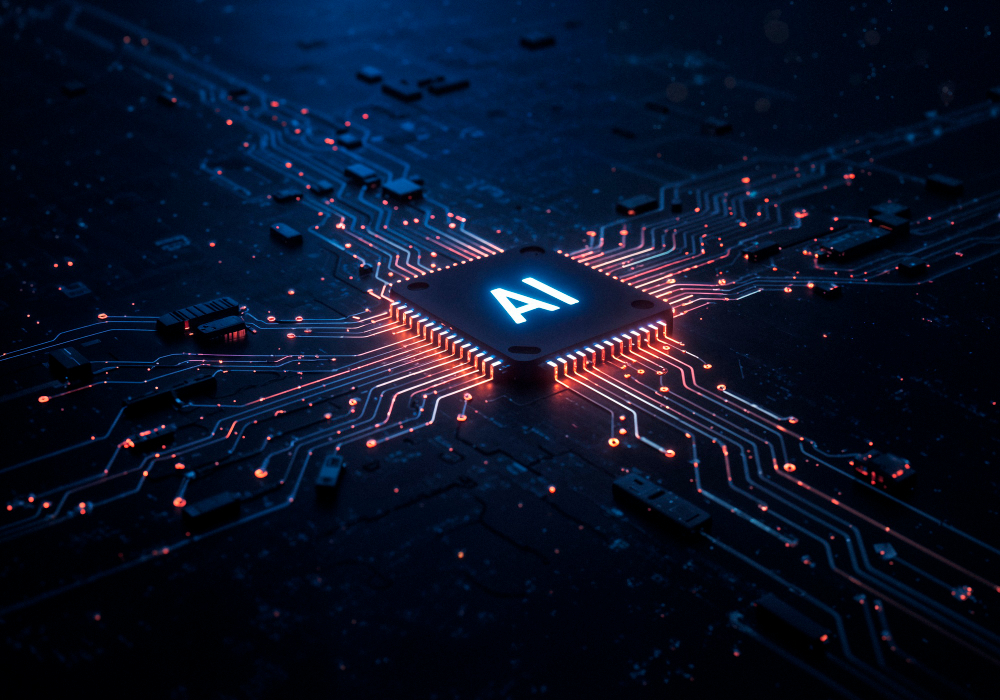
Enterprise Data Foundation Recognized: Leaders in Finance and Insurance Earn FUSION Awards in Governance and Analytics: The Hidden Pillars of Responsible AI
Prague, Czech Republic – For years, “Artificial Intelligence” has been a buzzword synonymous with futuristic robots and dystopian headlines. But as the dust settles, the real, tangible impact of AI is not in humanoid assistants, but in the intricate, invisible frameworks that now power our most critical sectors. This was the central theme at the recent International Conference on Data-Processing and Networking (ICDPN-2025) in České Budějovice, where global experts convened to map out the future – a future built on data, defined by architecture, and secured by governance.
For the United Kingdom, standing at a unique economic crossroads, the stakes could not be higher. The UK’s National AI Strategy has boldly positioned the nation as a global leader, aiming to transition from “discovery to deployment.” The insights from the ICDPN-2025 conference, however, add a crucial layer of nuance: deployment is impossible without leadership, and innovation is unsustainable without governance.
The Twin Engines: Analytics and Architecture
The modern economy runs on data. From the NHS leveraging predictive analytics to manage patient flow to London’s fintech startups disrupting global finance, the ability to process and understand vast datasets is no longer a competitive advantage – it is a baseline necessity. This is the domain of AI Data Analytics, the science of extracting meaningful “signal from the noise.” This field allows a high-street retailer to predict stock needs, a bank to identify fraudulent transactions in milliseconds, and a research lab to accelerate drug discovery.
However, analytics without a robust framework is like an engine with no chassis. This is where Machine Learning (ML) and Global AI Architecture come in. These disciplines are the “master blueprints” of the digital age. They determine how AI models are built, trained, and scaled. A poorly designed architecture may work for 1,000 users but will catastrophically fail at one million. As UK businesses look to scale their AI solutions globally, the need for architects who can design systems that are not only powerful but also resilient, efficient, and interoperable has become paramount.
The conference, rigorously indexed by Springer and Scopus, highlighted that the most significant advancements are happening at this architectural level. We are moving from isolated AI “experiments” to integrated, enterprise-wide “AI factories.” This industrialisation of AI is what will separate the winners from the losers in the coming decade.
The Human Element: Leadership and Governance
The most potent theme to emerge from Prague was not technical, but human. As AI systems become more autonomous, the need for clear leadership and robust governance has become a critical, board-level issue. This is where the FUSION Awards 2025, held in conjunction with the conference, focused its lens. The awards, guided by the theme “Synergy, Innovation, and Impact,” employed a gruelling 100-point rubric to find the top 5-7% of global innovators.
The award ceremony celebrated the individuals whose work provides the foundation for this new economy.
Ravindra Putchakayala, recipient of the AI Data Analytics Excellence Award, was honored for his pioneering work in building enterprise-scale digital analytics systems. He is credited with developing an advanced analytics engine that unifies complex data streams, including transactional activity, operational signals, regulatory data, and real-time event patterns, into a single predictive intelligence model. This framework has been shown to increase predictive accuracy by over 35 percent in the retail and e-commerce sectors, directly improving revenue forecasting and supply chain optimization. His platform also enhances real-time risk visibility and predictive decision-making across large-scale enterprise environments, establishing a reference architecture for AI-driven analytics used across multiple industries.
Siva Karthik Parimi has been recognized with the ML Architecture Excellence Award at the Fusion Awards 2025 for his exceptional contributions to the advancement of modern machine learning architecture. His work introduced original models that improved predictive accuracy across high volume datasets and strengthened interpretability in systems serving millions of user interactions. These contributions address core challenges in real world machine learning and have been acknowledged as advancing the broader field in meaningful ways. Siva’s architectural designs demonstrate both scientific rigor and operational depth, enabling AI systems to maintain clarity and consistent behavior under demanding production workloads. His innovations have been independently noted for reducing model drift, improving decision stability, and shaping current thinking around responsible AI development. The committee emphasized the originality and lasting significance of his work, recognizing it as consistent with individuals who demonstrate extraordinary ability in the discipline.
Rajesh Cherukuri has been honoured with the Global AI Architecture Excellence Award for his pioneering contributions to AI-enabled platform architecture at global scale. His work has advanced the design of intelligent, multi-tenant systems that support mission-critical digital experiences for millions of users worldwide. Rajesh’s patented contextual-assistance framework and AI-driven content-delivery models have become foundational components in enhancing reliability, reducing friction, and improving platform responsiveness across high-volume, regulated fintech environments. His architectural approach combines adaptive automation, behavioural intelligence, and cloud-native scalability, enabling digital platforms to deliver consistent performance across geographically diverse markets. These innovations address long-standing challenges in enterprise AI deployment, including latency reduction, personalization accuracy, and cross-market accessibility. The selection committee emphasized the originality, practical depth, and lasting significance of Rajesh’s contributions, noting that his work reflects the calibre of individuals recognized for extraordinary ability in AI architecture.
The Excellence in Applied AI Leadership Award has been presented to Mr. Venkat Kishore Yarram for pioneering AI-driven content and compliance frameworks that deliver higher accuracy, superior governance, and operational speed at worldwide scale. His AI architectures currently support digital ecosystems serving hundreds of millions of users, helping organizations strengthen regulatory alignment, reduce human intervention, and accelerate content production across Asia, Europe, North America, and emerging markets. Kishore’s work integrates automation, risk assessment, and transparent decisioning into a unified AI layer, influencing how modern global platforms handle high-volume content operations. This recognition reflects his status as a global innovator whose applied AI contributions continue to shape the future of large-scale digital systems.
Finally, Rohit Yallavula received the Data Governance Excellence Award for his vital work in making AI safe and trustworthy. Yallavula developed and open-sourced an automated governance framework that embeds ethical checks, bias detection, and GDPR/AI Act compliance directly into the code. This “governance-as-code” approach is being adopted as a critical tool for building responsible AI, giving UK firms the confidence to innovate without risking catastrophic regulatory or reputational harm.
ICDPN-2025: Fostering the Industry-Academic Data Dialogue
The ICDPN-2025 conference, hosted by the Institute of Technology and Business and co-organized with numerous international partners, including the Slovak University of Agriculture and the National Technical University of Ukraine, served as a crucial global stage for these foundational discussions. The publication of accepted research in the Springer LNNS series ensures that the technical depth of these industry achievements is documented and scrutinized by the global academic community. The FUSION Awards’ rigorous evaluation criteria, which place equal weight on Impact & Outcomes and Ethical & Responsible Innovation, ensure that the recognized contributions serve as blueprints for global best practice. The success of these US-based data and analytics pioneers reinforces a universal truth in the digital age: AI is only as good as the data foundation it stands upon, and the pursuit of data governance and analytical excellence is a global priority.



 Bitcoin
Bitcoin  Ethereum
Ethereum  Tether
Tether  XRP
XRP  USDC
USDC  Solana
Solana  TRON
TRON  Lido Staked Ether
Lido Staked Ether  Cardano
Cardano  Avalanche
Avalanche  Toncoin
Toncoin